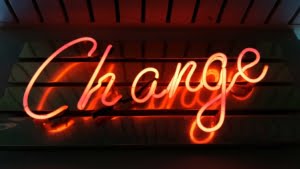Have you recently thought to yourself, “I need to lose weight”? If so, perhaps you want to know what you could do. The truth is you may know what you could do. You may have a wealth of knowledge and you might have even followed the advice of various experts. You might also consider San Diego Christian Counseling for additional support.
 Perhaps you know where you struggle — you start off strong, but struggle to sustain outcomes. This article is written to get you thinking and maybe even curious about translating those thoughts into action while feeling great.
Perhaps you know where you struggle — you start off strong, but struggle to sustain outcomes. This article is written to get you thinking and maybe even curious about translating those thoughts into action while feeling great.
With serious health problems, increased medical costs, epidemic rates of obesity, and a general sense of knowing I “should,” why do so many struggle?
The 50+ million internet articles would like to tell you, or just sell you. It’s hard to know what is true anymore. We now know obesity is a medical condition. The Body Mass Index, a height and weight ratio, has been one measure to define overweight and obesity, though it seems body fat percentages, body’s muscle, bone, fat, water percentages, and bioimpedance metrics are quite common.
We also know there are drugs, procedures, programs, fads, and I tend to think it seems almost anyone can call themselves an expert based on the many tools and services claim they understand. I want you to ask: What is best for your health, happiness, and vitality?
A healthy weight is an important part of health, wellness, and vitality. We have all experienced or know of a family member with weight-related health conditions like high blood pressure, high blood sugars, sleep problems, high cholesterol, pain, depression, anxiety, and hormone dysregulation.
Turns out, there are many reasons to lose weight, including health, wellness, or maybe even someone else that you care about. Yet, even knowing a healthy weight is an import part of health, wellness, and vitality does not equal a lifestyle of healthy choices.
It can be difficult to decide what to do for one reason because they all tell you how fantastic and effective they are. Did you know that the studies have shown that just about any diet can result in weight loss? That when you look at most programs, they address weight loss and management, and include fitness, nutrition, behavior, and some kind of behavioral change?
 What most do not point out is the abundance of evidence towards a healthy lifestyle is practicing a whole food, plant-predominant diet with regular physical activity, restorative sleep, and stress management.
What most do not point out is the abundance of evidence towards a healthy lifestyle is practicing a whole food, plant-predominant diet with regular physical activity, restorative sleep, and stress management.
Instead we have articles running the gamut on how to lose weight fast, quick, naturally, with this or that eating habit, or this frequency, intensity, time, or type of exercise.
So maybe instead of arguing about how the programs differ, we can unite in what worked for you. I would love to hear what worked, what did not, why, and see if we could use this strength because I believe you have the ability.
At this point it is no wonder that one in three Americans are obese. The media content is confusing. The messaging can stray from the fundamental evidence and maybe at the end of the day it really does not matter who or what works as much as are you meeting your objectives. The good news is that you could treat, prevent, and even reverse your health problems and start feeling well and vibrant. Luckily, change does not have to be drastic.
Diet, exercise, and behavior change are undeniable influences on health. Sure, it matters what you eat, but how and when you eat are equally as important. Knowing what to do versus how to do it are different. Remember all that knowledge does not always translate into action but what you likely do know is it is hard to lose weight and keep the weight off. It is much easier to eat 500 calories than burn off 500 calories.
Losing weight can be confusing, frustrating, and outright difficult. My weight fluctuated from 160 lbs to 240 lbs as a 6’2″ male. At 160 lbs I was training for triathlons and playing tennis six plus hours a day. At 240 lbs I welcomed a bottle of a Napa Cabernet, steak, and cheesecake followed by a breakfast burrito just to start the next day off right.
I felt fantastic at 160 lbs but I never had my “six pack.” I felt terrible at 240 lbs and even today that meal sounds fantastic. I had personal trainers, dietitians, meal delivery, and physicians telling me what I could do, but no one asked me how I felt. No one knew that the Cabernet, steak, and cheesecake was a reward. I was lonely but not with my wine.
 I had hypertension, heart disease, obesity, shortness of breath, depression, anxiety, and felt hopeless. After two hospitalizations, I finally got it. See, during the first hospitalization, I was not ready. The second one stays with me to this day. My mom was at the end of the bed. She did not say a thing. We did not exchange any words. We did not have to. That was all I needed to initiate a change. Sometimes we change for ourselves, other times health; for me, I started for my mom.
I had hypertension, heart disease, obesity, shortness of breath, depression, anxiety, and felt hopeless. After two hospitalizations, I finally got it. See, during the first hospitalization, I was not ready. The second one stays with me to this day. My mom was at the end of the bed. She did not say a thing. We did not exchange any words. We did not have to. That was all I needed to initiate a change. Sometimes we change for ourselves, other times health; for me, I started for my mom.
Steps to Take Toward Losing Weight
So what could you do to get started? Below are a couple ideas to think about.
You could:
- Identify what stage of readiness for change you are in.
- Find the Transtheoretical Model (Stages of Change) here: www.prochange.com
- Initiate change with small attainable steps focusing on what you could do today.
- Work towards SMART goals: Specific, Measurable, Attainable, Realistic, Timely
- Start with a specific action today. Then create goals for the week and month that are measurable. Need help? Just ask. I would be happy to help.
- Ask yourself, what has worked for you? What have you done well?
Sometimes we forget to focus on what we do well. Other times we disqualify the positives. The emphasis here is on your abilities, potential, and values.
What are your values? Why are you doing this? I initiated change for my mom. I sustained change for me. Maybe health and feeling happy are one of your values, you just aren’t where you want to be.
- Do you need accountability? Do you need reinforcement?
- Could you eliminate a certain food group? What would happen if you went through the house and threw out the sugars, salts, and alcohol?
- We can focus on how to differentiate physical from psychological hunger later. I think this is very important. Do you know how?
- Can you identify your triggers or the antecedents that contribute to you making a poor diet choice?
- Are you an emotional eater? Do you reward yourself with food?
- Do you forget to eat? Are your eyes bigger than your stomach? Do you make the wrong choices when you are stressed?
- Do you hate the gym? Do you have the right clothes to exercise in? What type of activity do you like?
- Do you track your intake? How do you track your exercise or dietary habits?
- Is tracking problematic for you? Maybe you perceive tracking as a chore? Do you utilize any technology? Keep in mind that tracking does not have to be a long-term objective.
 Knowing what to do and knowing how to do it are different. Some believe this begins with what you are thinking. The hard part is slowing down enough to identify when those problematic thoughts get in the way.
Knowing what to do and knowing how to do it are different. Some believe this begins with what you are thinking. The hard part is slowing down enough to identify when those problematic thoughts get in the way.
Google or search with your favorite browser “cognitive distortions.” These are thinking patterns. It may be difficult to determine thinking patterns in the moment. Ultimately, we want to connect the thoughts to a feeling and action. Sound difficult? I can help, it does not have to be.
Quality sleep can be pivotal. Water consumption can be pivotal. Do you know how to start?
Could you apply a SMART goal to drinking more water? I think so.
Chances are, if you have read this far you probably relate to something written. Are you looking for new tools? Are you looking to initiate change and share your story? Maybe you want to stop yo-yo success. Whatever the reason, I believe I can educate, enable, and empower the attainable change you desire.
Still worried if I am a good fit? This is one reason our initial appointment could be FREE. For all I know, you may not like my colorful socks. I want to make you comfortable by being helpful, nourishing success, creating safety, and guiding through to resolution.
Schedule an appointment today at San Diego Christian counseling.
“Be able to love”, Courtesy of Lesly Juarez, Unsplash.com, CC0 License; “Man at the Crossroads”, Courtesy of Vladislav Babienko, Unsplash.com, CC0 License; “Change”, Courtesy of Ross Findon, Unsplash.com, CC0 License; “Together, We Create!”, Courtesy of “My Life Through A Lens”, Unsplash.com, CC0 License


